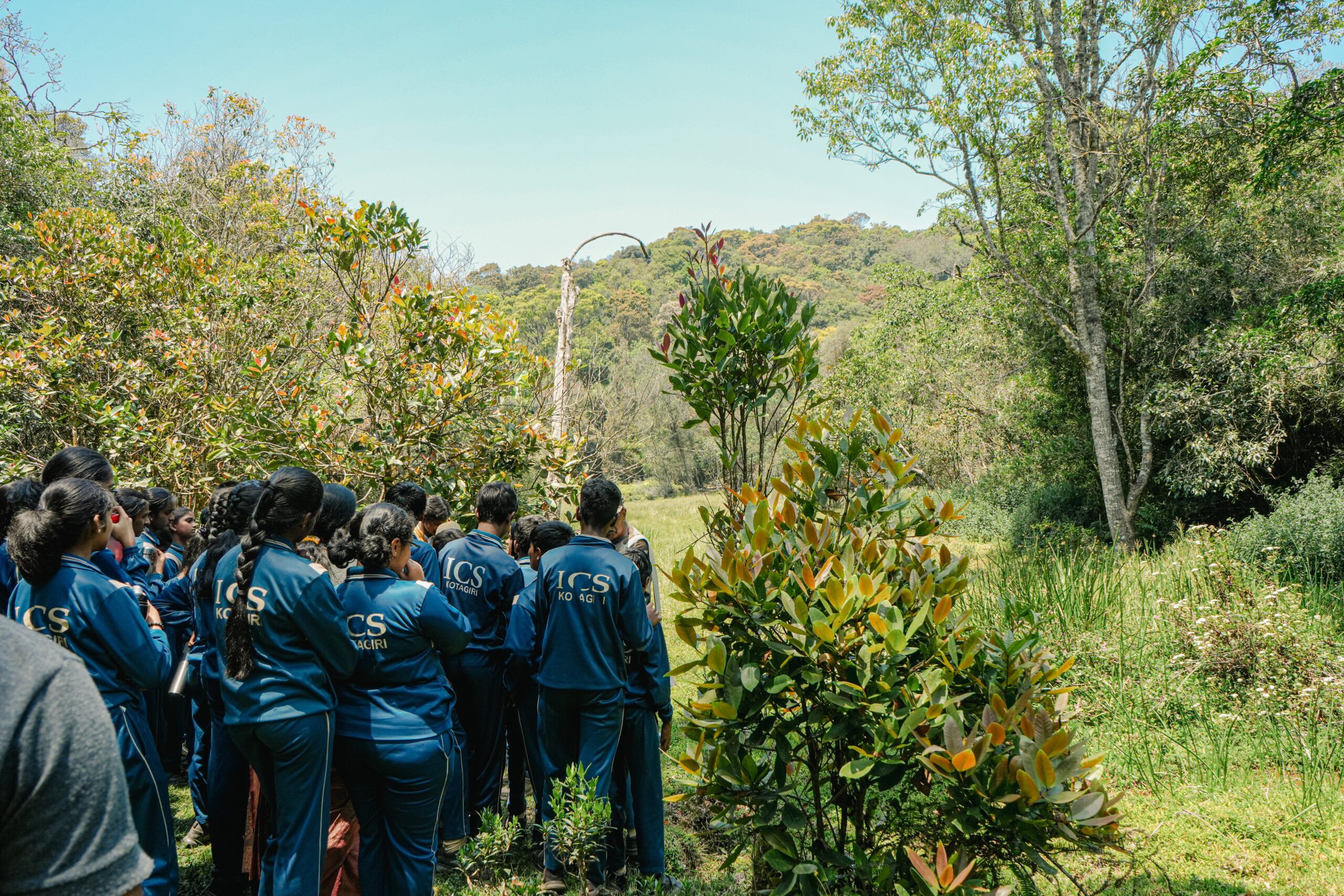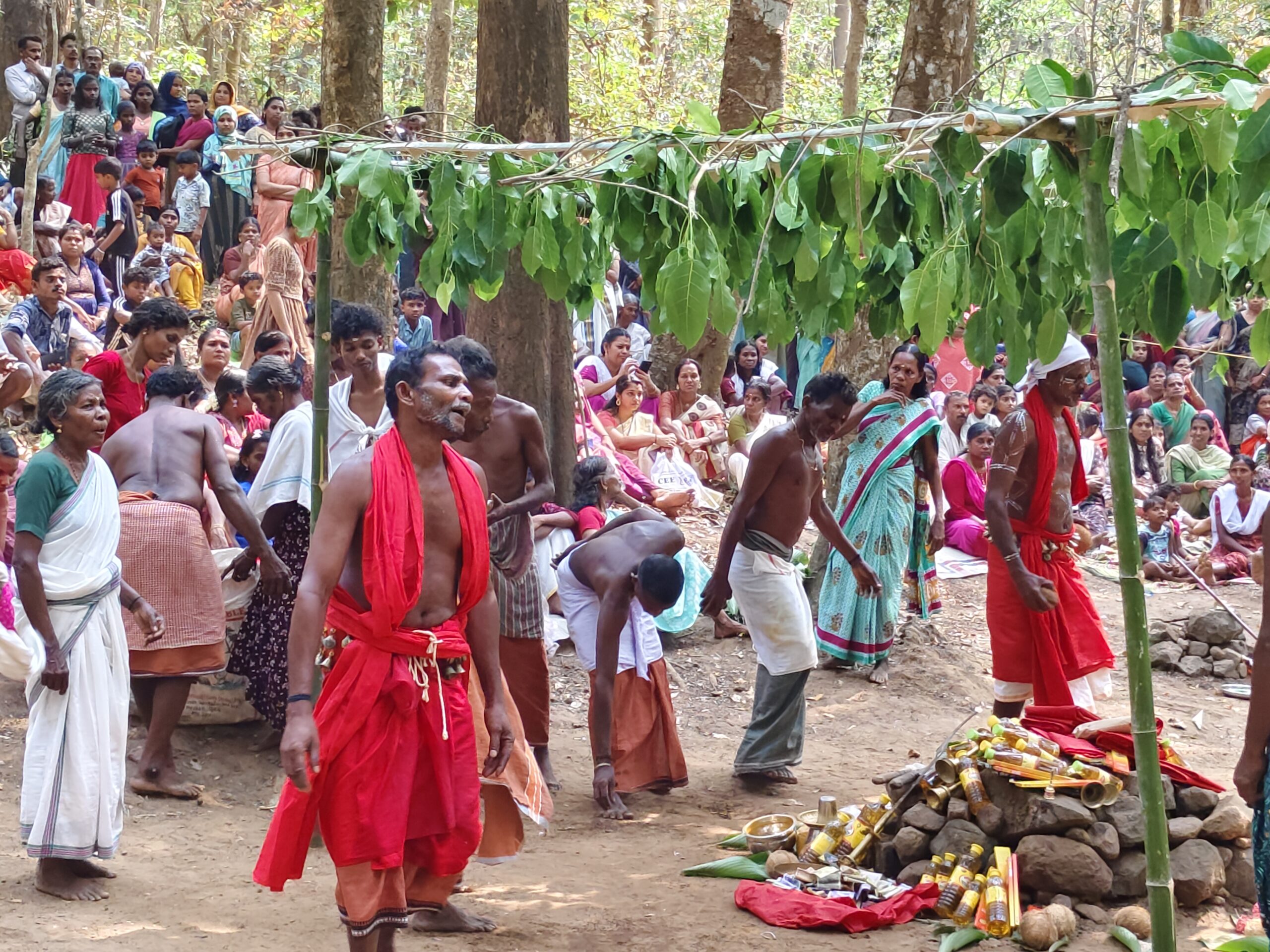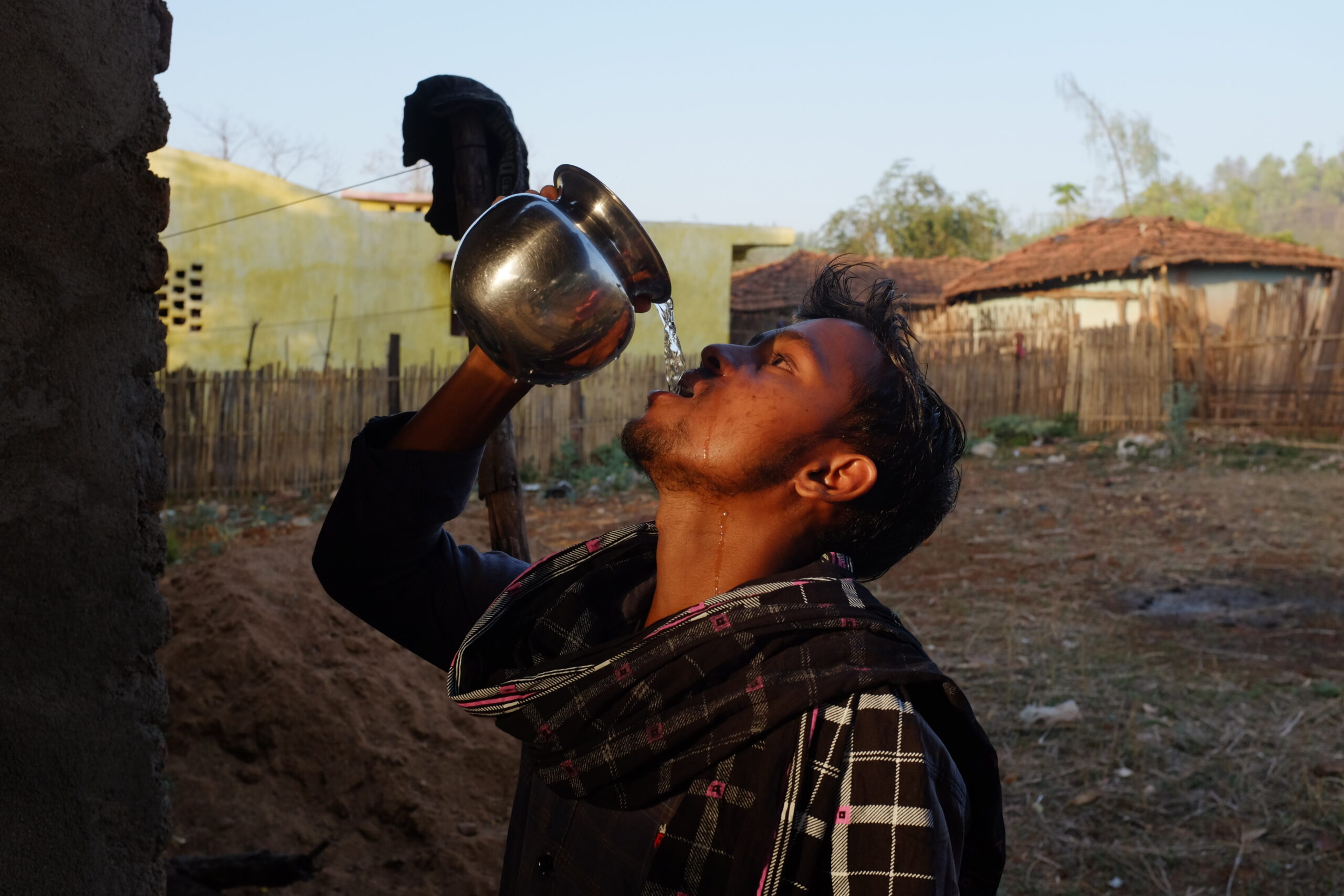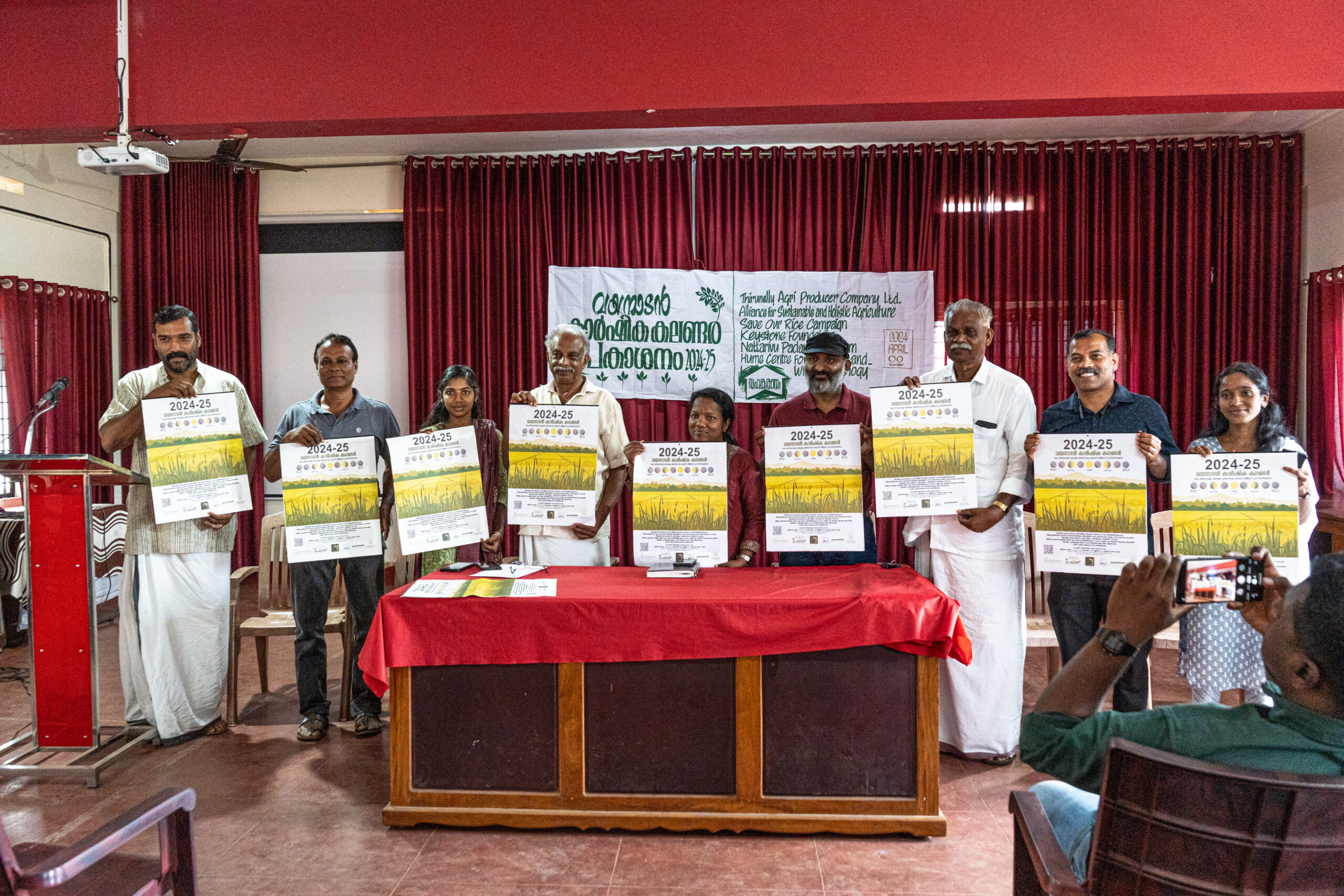On the last weekend of October, a two-day workshop for Kheriya Sabar and Santhal women was held at Pargora village. People for Nature Fund (PNF) fellow Niyati Hansda and members of the Paschim Bangla Kheriya Sabar Kalyan Samiti (PBKSKS) – an NGO working in West Bengal. Their team was responsible for coordinating and organising the program.
The focus of the workshop was to promote leadership development and capacity building of Sabar and Santhal women. The Sabar and Santhal communities of Bandwan Block have traditionally been dependent on forest produce and natural resources both for subsistence and their livelihoods. However, with changes in the markets, they are not getting a good value for a variety of traditional products that they manufactured and sold, like a variety of bamboo products sold in local markets.
In this context, the women were provided training in handicraft making using locally available material, which would help boost income generation.
Fatik Hebrum from PBKSKS was the resource person for leadership development and capacity building. He spoke to the women about their rights, essential elements required to ensure livelihood security. Fatik also facilitated a discussion on how members of the Sabar and Santhal communities face regular harassment from government officials just to access what is rightfully theirs.
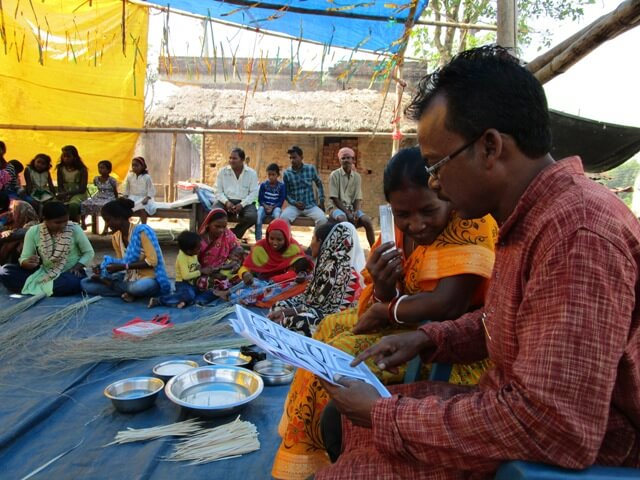
He emphasised the need to form robust groups from within their communities, build unity amongst themselves and develop the leadership capacity of their own so that they themselves can address the challenges they are facing and find effective solutions. The women discussed how they will come together and strengthen their groups to effectively claim their rights and improve their livelihoods.
The COVID-19 pandemic and the associated lockdowns and restrictions negatively impacted the food, nutritional and livelihood security of the Sabar and Santhal communities. As a result of the closure of markets and restrictions on movement these communities found it challenging to sell their produce and products and earn a livelihood in order to meet their basic needs. PBKSKS with support from different organisations like Keystone Foundation and APPI provides relief to these communities in the form of monthly rations.
However, Fatik pointed out that provision of relief was not a viable solution as after the rations were exhausted the community members would continue to face challenges to ensure livelihood and food security. In this regard, they are exploring and implementing different strategies. Kitchen gardens and mixed cropping in their lands have been promoted to ensure that they can produce their own food.
The Sabar and Santhal are skilled with their hands, and they have been producing a variety of bamboo products. In the past PBKSKS and provided numerous trainings on handicraft making to members of the Sabar community in other parts of the Purulia district and supported them in the marketing of these products. In the face of the challenges faced in securing their livelihoods in the light of pandemic, in consultation with women members of the Sabar and Santhal community it was decided to organise a training program on making handicrafts to promote income generation activities.
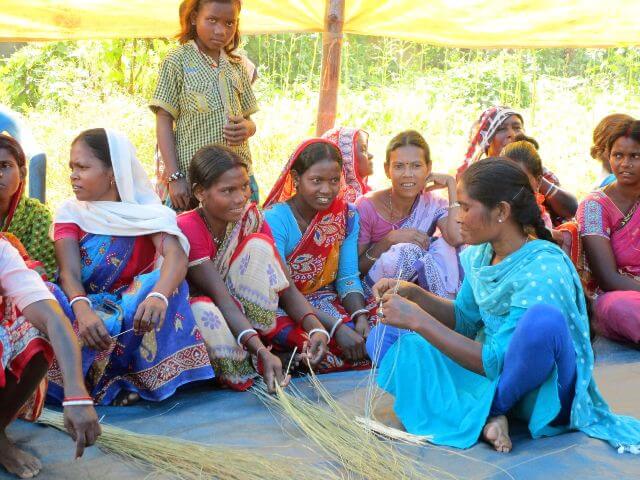
Baby Munda (Senior Handicraft Artisan) and Ahalya Munda (Handicraft Artisan) conducted the training on handicraft making. other resource persons who give training about handicrafts making, and Handicraft designs. Ahalya Munda shared that she had initially received training from a Sabar woman – Ghanni Sabar, and now she herself is a trainer. The women participants were already adept at making various products from bamboo, leaves and grasses for sale in local markets.
Building on these skills the trainers taught them how to make a variety of different products using locally available Khejur Patta (Date Palm leaves / Phoenix sylvestris), Babuii Ghas (Sabai grass/Eulaliopsis Binata) and Kashi grass(Saccharum spontaneum). Jilepi Sabar from Pargora village felt that this training would equip them with the skills to produce different handicrafts which they could sell to traders who came to their village or sell themselves in different markets, thereby helping them enhance their income.
In addition to providing the participants with handicraft-making skills Baby and Ahalaya also discussed how to market the products in order to ensure a sustainable income generation stream.


